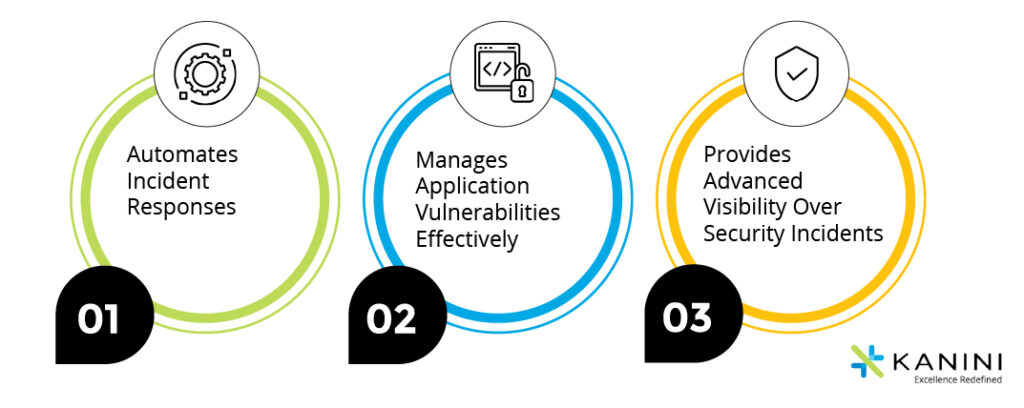With the increased utilization of technologies in today’s business world, companies have been able to deliver advanced services to their customers. But along with technological advancements, cyber-attacks have also increased. For instance, imagine what you would have to go through if someone hacked your google account or your computer. Your data will go into someone’s hands, and they might use it to their benefit. And, what happens if the same situation happens with a large organization that is heavily dependent on technology to deliver its products or services to customers? It can cost the company millions of dollars. And conventional cybersecurity approaches are no longer efficient in tackling today’s complex cybersecurity risks and improving IT security operations.
ServiceNow Security Operations (SecOps)
Prevent Cyber Attacks and Improve Resilience
3 Critical Ways ServiceNow Transforms IT Security Operations

1. Automates Incident Responses
2. Manages Application Vulnerabilities Effectively
3. Provides Advanced Visibility Over Security Incidents
The Bottom Line
Author

Joshua Smith
Joshua is a process improvement thought leader and digital transformation expert at KANINI. Over the past 15 years, his focus has always been on achieving organizational maturity and enhancing business processes through implementing tools and workflows to drive transformation initiatives. With experience in multiple verticals from – manufacturing to healthcare, Joshua brings a practitioner’s perspective when working on business solutions and goals to allow him to advise and guide on industry and process best practices.








